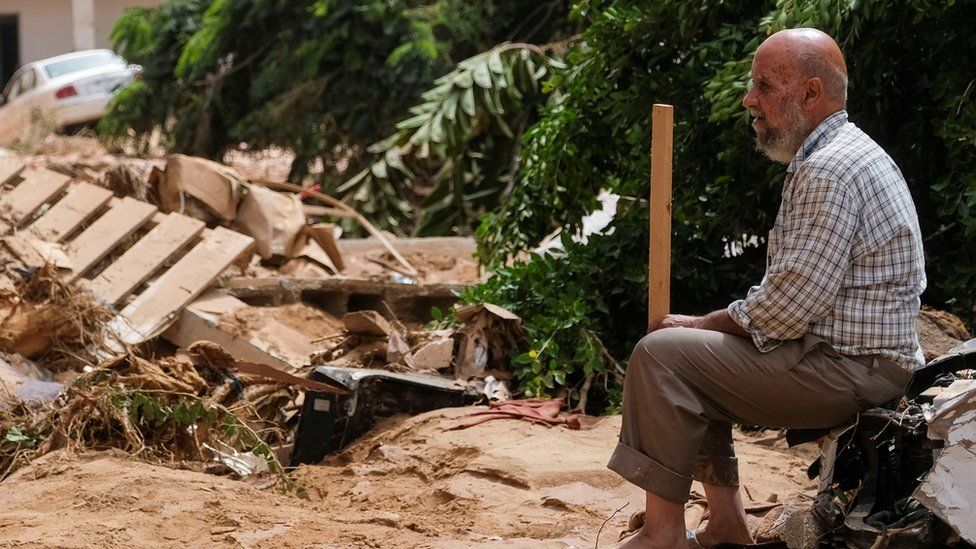-

-
-
Loading

Loading

Raging floods have swept through eastern Libya, causing widespread devastation and resulting in the deaths of over 5,300 people, with another 10,000 still missing. The UN has described the situation as a "calamity of epic proportions," but it begs the question of whether this could have been prevented. Libya, once a prosperous nation, has been plagued by lawlessness and division for years, leaving it ill-prepared to handle the aftermath of a natural disaster. The city of Derna has been the hardest hit by the flooding, highlighting the breakdown of Libya as a whole. Derna has suffered from neglect and lack of investment for decades, and it was revealed that one of the dams that burst had not been maintained for a significant period of time. This lack of preparation and infrastructure maintenance has significantly contributed to the destruction caused by the floods. Following the overthrow of long-serving ruler Col Muammar Gaddafi in 2011, Libya has descended into chaos. The country has been divided between two rival governments and has been plagued by conflict between various militias. Prime Minister Abdul Hamid Dbeibah leads the UN-backed Government of National Unity in the capital city of Tripoli, while a rival administration known as the House of Representatives governs eastern Libya, including the areas worst affected by the floods. In the east, military strongman Gen Khalifa Haftar holds considerable power and is backed by Egypt, the UAE, and Russia. The ongoing feuds between the rival governments have hindered their ability to respond swiftly and cohesively to disasters like the recent floods. The lack of coordination and cooperation between the administrations has made it difficult for countries willing to provide support to negotiate with the two factions. Despite this division, the government in Tripoli has managed to send assistance, including medical supplies, doctors, and paramedics, to the affected areas in the east. This gesture of cooperation has raised hopes that it might inspire the politicians to set aside their differences and work towards forming a single government again. The neglect and lack of investment in Libya's infrastructure over the years have significantly contributed to the devastation caused by the floods. Derna, a city with tens of thousands of inhabitants, didn't even have an official hospital at the time the storms hit. Instead, a makeshift hospital was operating out of a five-bedroom villa. The erosion of Derna's infrastructure and basic services has been ongoing, with schools and hospitals in deplorable conditions. The floods in Libya have once again highlighted the urgent need for the country to address the divisions and chaos it faces. Joint efforts and cooperation between the rival governments are rare but not impossible, as evidenced by the establishment of a committee to oversee the sharing of oil revenues. The oil sector is essential to Libya's economy but has been severely impacted by violence since Gaddafi's fall. The recent floods in eastern Libya are not only a result of natural disaster but also a consequence of decades of neglect and self-destruction. Dr. Hani Shennib, president of the National Council of US Libya Relations, has pointed out the continuous deterioration of Derna due to neglect and lack of investment, even after the revolution. The effects of natural disasters are exacerbated by the failure to prioritize essential services and infrastructure. It is evident that Libya needs a unified and stable government that can prioritize the well-being of its people and invest in critical infrastructure. The continuous infighting and divisions have only resulted in further suffering and vulnerability for the Libyan population. Ultimately, it will require concerted efforts and political will to rebuild and transform Libya into a resilient and prepared nation capable of effectively responding to natural disasters and other crises.